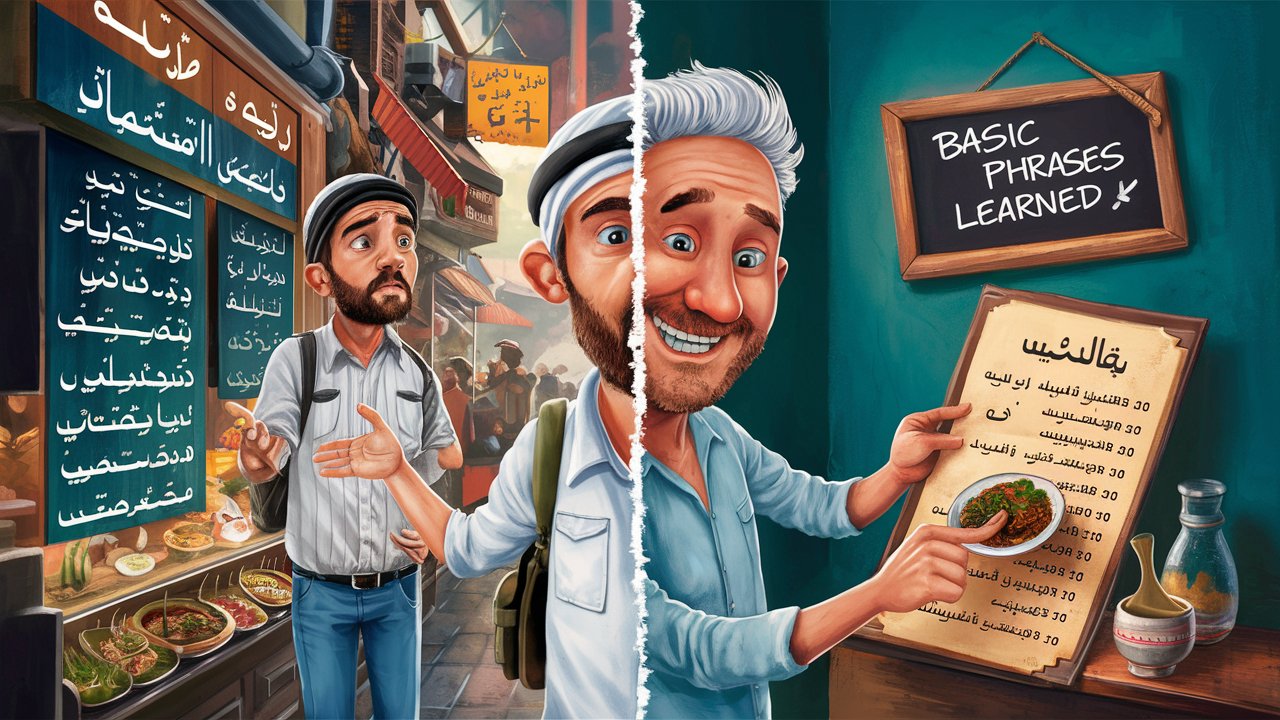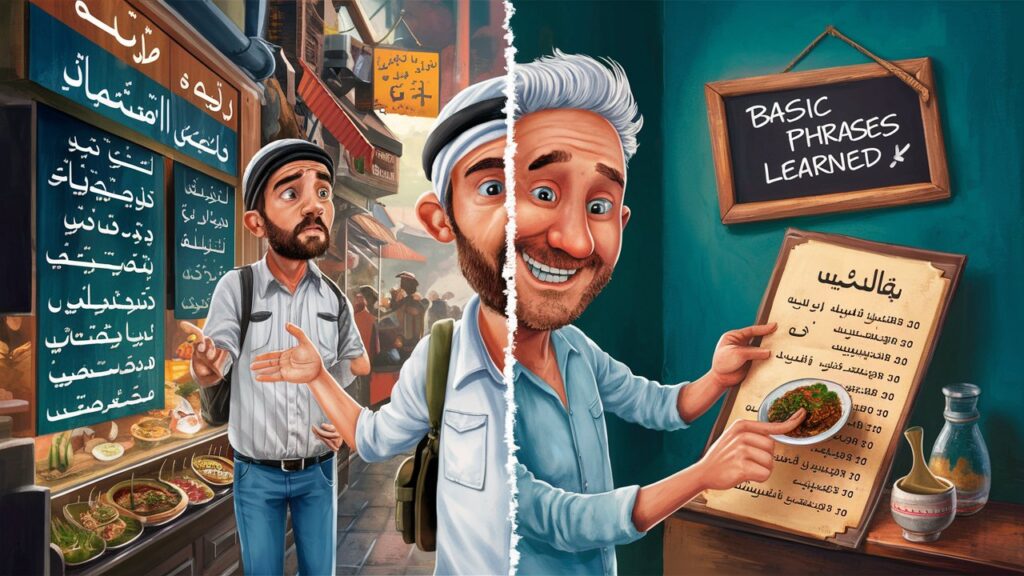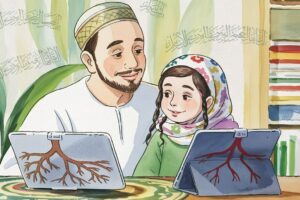
Arabic for Travelers: Exploring Muslim-Majority Countries with Confidence
Dreaming of exploring the vibrant cultures and rich history of Muslim-majority countries like Morocco, Turkey, or Malaysia? These destinations offer incredible experiences, from bustling souks to awe-inspiring mosques. However, navigating a new language can sometimes feel like a barrier. Here’s where learning some basic Arabic for travel can truly enhance your experience.
Confidence and Connection:

Even a few key Arabic phrases can boost your confidence and build connections with locals. Imagine the delight on a shopkeeper’s face when you greet them with “Assalamu alaykum” (Peace be upon you) or thank them with a sincere “Shukran” (Thank you). This small effort to speak their language shows respect and appreciation, opening doors for more genuine interactions.
A Smoother Travel Experience:
Learning basic Arabic goes beyond pleasantries. Imagine navigating bustling marketplaces with ease, knowing how to ask for directions (Ayna… ?) or order delicious halal food with confidence (“Ana abi…” – I would like…). By understanding local signage and menus (written in Arabic script), you can avoid tourist traps and experience the authentic side of these destinations.
Essential Arabic Travel Phrases:
Let’s get started with some essential Arabic travel phrases! Here are a few key greetings and introductions:
- Assalamu alaykum (Peace be upon you): This is a universal Muslim greeting used in various situations. Pronounced: uh-SAH-lam-u-alay-kum.
- Shukran (Thank you): A simple yet powerful way to express gratitude. Pronounced: shoo-KRON.
- Min fadlik (Please): Use this to politely make a request. Pronounced: meen FAD-lik.
Beyond greetings, master some essential travel phrases like “Ana abi…” (I would like…) followed by the desired item or service. Asking for directions becomes easier with “Ayna…?” (Where is…?) and “Fhimtu” (I understand) helps confirm comprehension.

Beyond Basic Arabic: Cultural Tips
Learning some basic Arabic goes hand-in-hand with understanding cultural sensitivities. Greetings and dress code (especially for women traveling in Muslim-majority countries) can vary by region. Being mindful of respectful body language and appropriate gestures goes a long way in building positive connections.
Conclusion & Call to Action:
Learning Arabic for travel opens doors to a richer, more immersive experience. Start with simple phrases and explore resources like travel phrasebooks or language learning apps.
Ready to share your Muslim travel experiences? Let us know in the comments below! Which Arabic phrases did you find most helpful?
By incorporating these tips and taking the initiative to learn some Arabic, you’ll be well on your way to a rewarding and unforgettable adventure in Muslim-majority countries!



